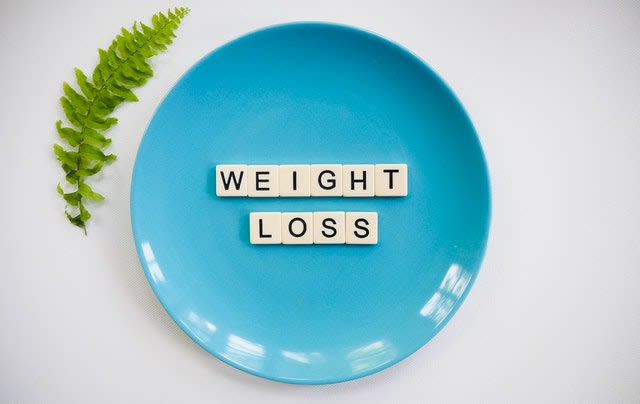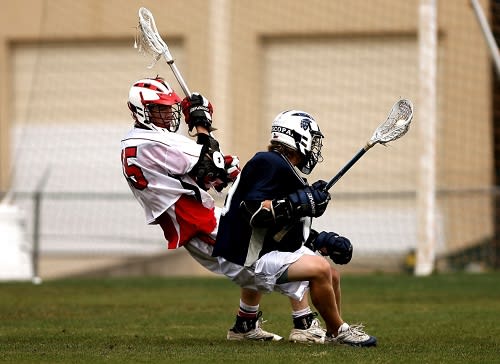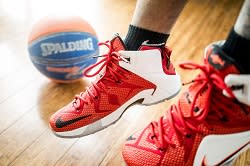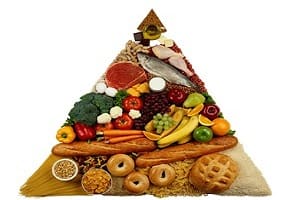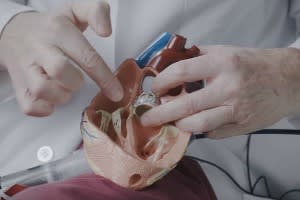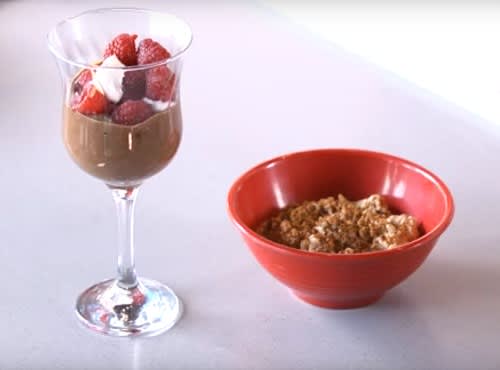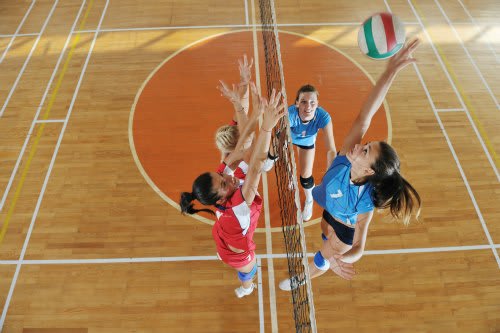New Year's Nutrition for Athletes
Published: December 29, 2014l
By: Stamford Health Staff
A new year is soon upon us! With 2015 just around the corner, it’s certainly an appropriate time to ponder over the past year, but an even more opportune time to think about moving things forward! For competitive athletes, and fitness exercisers alike, a small investment in nutrition awareness in the New Year may pay huge dividends in reaching refreshed goals. Here are 8 simple strategies for maximizing the impact of nutrition efforts on sport and exercise performance and enjoyment!
Never skip breakfast
Taking time to start your day off with adequate morning fuel can help prevent cravings for sugary foods, overconsumption of less nutritious options, and often undesired weight gain. It doesn’t have to be sit down, or traditional breakfast food, either. A to-go mug of soup or smoothie, a homemade egg sandwich in the microwave, or even leftovers, will suffice. Breakfast is absolutely key when it comes to having a high energy day! Avoid this frequent nutrition no no at all cost!
Eat regularly
Providing your body with the nutrients it needs frequently over the course of the day, gives it the best odds of having what it needs available, when it needs it. Consuming adequate protein, carbohydrate, and fat at meals and snacks, for example, helps stabilize blood sugar to prevent excessive hunger, maximize muscle energy stores, provide fullness and satiety, and optimize muscle growth and repair.
Whip it up in the kitchen
Preparing your own meals allows you to have the most control over the quality and quantity of foods you put in your body. Aim to keep it simple, quick, easy, and affordable at first, for the least frustration and greatest success. Add complexity to your menus as you move forward. Start out with a written plan and include one or a few new recipes each week Make a shopping list and get the goods you need for your plan in your pantry, fridge, and freezer. Aim to cook and prep larger batches of foods and use them more than once. A big pot of chicken-vegetable-barley soup made on a Sunday in the winter, can provide a few dinners, lunches, and even breakfasts and snacks during the week. Freeze some for the future too! Bon appetite!
Yield when it comes to less nutritious foods
That doesn’t mean putting the brakes on “fun” foods altogether. Moderation not deprivation is the key. Building a fueling foundation based on foods your body really needs, allows for some wiggle room when it comes to those less nutritious favorites! Thinking 80%-20%, respectively, or a ratio that works best for you, can help you stick with your health and performance supportive nutrition plan more effectively and enjoyably throughout the year.
Eat clean more often.
Making the effort to fuel yourself naturally with minimally processed, whole foods most often, may provide the body with the required nutrients it needs, while minimizing the intake of, and any potential impact from, the artificial additives and preservatives in more processed foods, that it doesn’t need.
Aim for a variety of foods each time you eat.
Choosing a variety of foods at each meal and snack means a greater variety of vitamins, minerals and other nutrients consumed. Try to eat at least three to five different kinds of nutrient dense foods at meals and snacks. A bowl of whole grain cereal with low-fat milk, chopped walnuts, ground cinnamon, and fresh blueberries, is sure to pack a more powerful nutrition punch than the cereal and milk alone.
Rev, run, and recover effectively.
Eating and drinking the right foods and beverages at the right time can mean the difference between sitting on the sidelines with cramps, bloating, and/or diarrhea, and finishing your first ½ marathon ahead of your goal pace! Timing really is everything, and size does matter, when it comes to pre, during, and post exercise eating, that is. A quicker digesting carbohydrate like rice cakes, saltine crackers, or toast 30 minutes before is likely to yield a more enjoyable and productive exercise session than a larger, higher protein, more complex carbohydrate rich meal, that may be more suitable for post exercise recovery.
Seek out support.
Finding reputable sources of that provide effective, supportive, and evidence based nutrition guidance is important. It can help avoid the “spray and pray” technique, assist us in making sense out of the endless nutrition advice that floods consumers daily, and avoid making nutrition choices that may ultimately negatively impact our performance, enjoyment, and health. Seeking out sports nutrition services in the New Year, from a Certified Sports Specialist Dietitian at Stamford Hospital, may be just the tweak needed to round out the edges of your New Year training endeavors.
Featured Expert/ Author

















